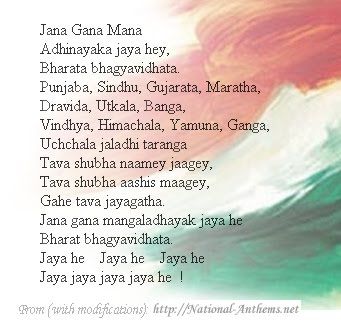National Anthem of India: A Powerful Symbol of Unity
A Majestic Composition by Rabindranath Tagore
Jana Gana Mana: Resonating Across the Nation
India's national anthem, "Jana Gana Mana," stands as a powerful embodiment of the country's spirit of unity and pride. Composed in 1911, the song was originally written in the Bengali language by India's first Nobel laureate, Rabindranath Tagore. Tagore's masterful creation encapsulates India's diverse heritage and aspirations, inspiring generations of Indians.
The Journey to National Anthem Status
The song's journey to becoming the national anthem was not immediate. It was first adopted as the anthem of the Indian National Congress in 1947, and later officially recognized as the national anthem of the Republic of India in 1950. Since then, "Jana Gana Mana" has reverberated across the country's major events and ceremonies, stirring emotions and fostering a sense of national identity.
A Legacy of Inspiration
Today, "Jana Gana Mana" continues to inspire and unite Indians. Its melodious tune and profound lyrics evoke feelings of patriotism and reflect the country's rich history and aspirations. The song's lasting impact is a testament to Tagore's extraordinary ability to capture the essence of India and create a timeless masterpiece that resonates with generations of Indians.
As we listen to the strains of "Jana Gana Mana," let us remember the legacy of unity and pride it represents. May this timeless anthem continue to inspire us to work together in harmony for a brighter future for India.


Komentar